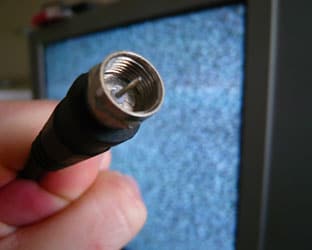FCC Chairman Julius Genachowski addressed the Mobile Future Forum, describing the National Broadband Plan and the search for spectrum. He also had kind words to say about the historical contributions of broadcasters and their positive role going forward. NAB President/CEO thanked the Chairman and expressed his hope that the FCC is serious about broadcasting’s future.
“To avoid this crisis, the National Broadband Plan recommended reallocating 500 megahertz of spectrum for broadband, nearly double the amount that is currently available,” said Genachowski. “But this essential transition will not come easy. As I mentioned at the outset, we’re not drawing on a whiteboard. We’re that market leading company with established practices and reliances, responding to new, disruptive technology and competitors. Our spectrum allocations reflect the leadership we’ve already shown.”
Continuing, he noted, “In the 20th century, U.S. spectrum policy contributed to U.S. economic success. It led to the creation of a strong broadcasting industry that, together with our film companies, became the vital U.S. content sector, a significant contributor to our local communities, a strong source of exports, and a key part of our 20th century economic growth.”
Genachowski noted the broadcast role now and going forward. “Broadcasters continue to provide important and valuable programming – and many are creatively bringing their programming to multiple platforms. This started years ago with cable and satellite, and continues as many broadcasters now seek to reach their audience on wired and wireless broadband, as well as providing free over-the-air TV to viewers who might otherwise lack access to broadcast programming. Broadcasters’ efforts to become multiplatform programming entities should be encouraged, and we should work together to remove barriers to such efforts.”
NAB President and CEO Gordon Smith responded in short order. “NAB appreciates Chairman Genachowski’s acknowledgment that hundreds of broadcasters are developing new and creative business models on multiple platforms to serve millions of viewers.”
Smith continued, “We’re also encouraged by his repeated promise that reclamation of additional TV spectrum will be entirely voluntary, and that broadcasters who don’t ‘volunteer’ won’t be forced into inferior bands. As we’ve said from the outset, broadcasters will work with policymakers to address the nation’s spectrum capacity challenges. The undeniable fact is this: broadcasting’s ‘one-to-many’ transmission system for delivering video to the masses can help solve any spectrum capacity shortages. Compared to the ‘one-to-one’ transmission scheme of cellphone providers, broadcasters are by far the most efficient users of spectrum.
In conclusion, Smith said, “We are hopeful that going forward, the FCC undertakes a thoughtful process that in no way jeopardizes the digital promise that was made to 43 million Americans who rely exclusively on hyper-local news, entertainment, foreign language and religious programming offered by free and local broadcasters. Finally, we would respectfully ask for an independent study to confirm Chairman Genachowski’s assurances that spectrum suitable for wireless broadband is not lying fallow, given recent verbatim remarks to the contrary from current FCC licensees.”




